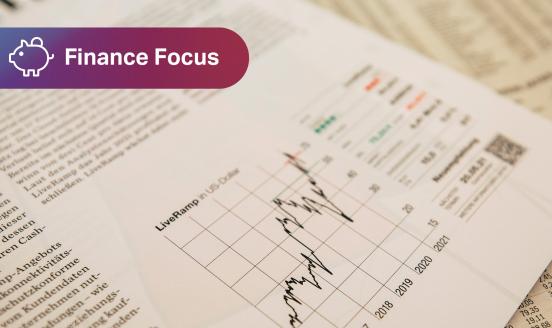Giving Asia its due in global financial regulation
With US inward turn, China should get a bigger role to bolster system
Global cooperation on financial regulation has become increasingly important and valuable over the last decade, but its effectiveness cannot be taken for granted. Following November's U.S. presidential election, Asia, and particularly China, needs to take a more central role to ensure the viability of the global system.
Compared with other modes of international economic cooperation, the global financial regulatory system is in a nascent stage of development. It is made up of a network of diverse organizations and groupings, many of them without legally binding authority, with the Financial Stability Board acting as a coordinating hub.
This system has grown in importance, particularly since the global financial crisis, and its impact has been overwhelmingly positive. The Basel Committee on Banking Supervision, for example, has helped to limit cross-border competitive distortions resulting from incompatible prudential rules and has been increasingly forceful in monitoring national compliance with its agreed standards. The widespread adoption of the International Financial Reporting Standards Foundation's accounting principles has greatly enhanced the international comparability of listed companies' profit statements, even if not yet on a universal basis. The Global Legal Entity Identifier Foundation has opened the way toward universal interoperable financial data formats by issuing codes to transaction participants that function in a way comparable to the internet protocol addresses that underlie the World Wide Web.
Such arrangements are even more valuable as the global financial system becomes increasingly multipolar and interconnected, enhancing the need for joint work by public financial authorities on a commonly agreed basis.
Aside from the above organizations, key participants in the regulatory system include treaty-based organizations such as the Bank for International Settlements, which hosts the Financial Stability Board, the International Monetary Fund, the World Bank, and the Organization for Economic Co-operation and Development and its Financial Action Task Force. These are complemented by independent groups such as the International Organization of Securities Commissions, the International Association of Insurance Supervisors and the International Forum of Independent Audit Regulators. The roots of the treaty-based institutions can be traced to the second quarter of the 20th century, but none of the other entities in this global network are more than 45 years old.
The global financial regulatory system has long been lopsided and in need of change as the emergence of new financial powerhouses, particularly in Asia, has challenged the dominance of North American and European states.
Significant improvement has flowed from the 2008 shift to tackling financial and economic issues at Group of 20 leaders' summits from Group of Seven nation summits. The membership ranks of the Basel Committee and the Financial Stability Board, for example, have been expanded to include major emerging economies and financial centers.
But blatant imbalances remain. On a recent count, all but one of the 27 most senior leadership positions in this system were held by nationals from North Atlantic countries. Almost all entities in the network are similarly headquartered in the North Atlantic region, the only exception being the soon-to-be-established permanent secretariat of the International Forum of Independent Audit Regulators in Tokyo.
Challenges ahead
The system's institutional fragility is about to be tested by the incoming administration of U.S. President-elect Donald Trump. His "America first" stance will surely create multiple challenges for all international cooperation frameworks, and financial regulation will be no exception.
The response to this test should include an accelerated rebalancing and reform of the global regulatory system to ensure its viability in the new environment. Asia, and specifically China, should claim a much more central position in the system than is currently the case and other nations should facilitate this evolution.
Specifically, China should propose highly qualified officials, of which it has an increasing number, for positions of leadership in global financial regulatory bodies and engage more proactively in their various workstreams. As with action against climate change, and given Europe's current internal difficulties, China is fast becoming the indispensable anchor for sustainable joint efforts at the global level and should invest accordingly in its representation in global discussions.
In this context, Europe should streamline its presence in the system, as a logical consequence of its own ongoing reform and thus leave room for greater Asian and Chinese leadership. Specifically, Europe's banking union implies that the representation of individual euro-area countries in bodies in charge of financial stability has become anachronistic and should be replaced by euro-area or EU-level participation. The Basel Committee is a case in point. Now that banking supervisory policy has been comprehensively pooled within the euro area, the separate membership of Belgium, France, Germany, Italy, Luxembourg, the Netherlands and Spain should be phased out.
The relevant bodies should then demonstrate their continued relevance by further improving the system's effectiveness, even if the new U.S. administration does not initially join some of the resulting initiatives. For example, the Bank for International Settlements, the IMF and others should further harmonize formats for financial statistics and data collection. Global regulatory standards should be forcefully developed in new areas in which their need is increasingly evident, such as derivatives. And steps should be considered toward establishing a global level of supervision for limited but critical segments of the financial system, starting with those with no likely fiscal or quasi-fiscal impact in a crisis, such as credit rating agencies or audit firms.
The events of the past decade have amply demonstrated the need for strong global regulatory and supervisory arrangements to keep the inherent risks of cross-border financial integration in check. The prospect of a more unilateralist America should force a rapid realignment in China, other Asian countries and Europe, so that the existing, beneficial financial regulatory system is not left to unravel.




